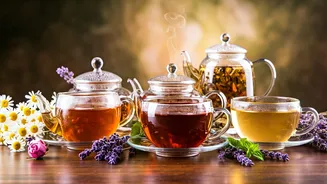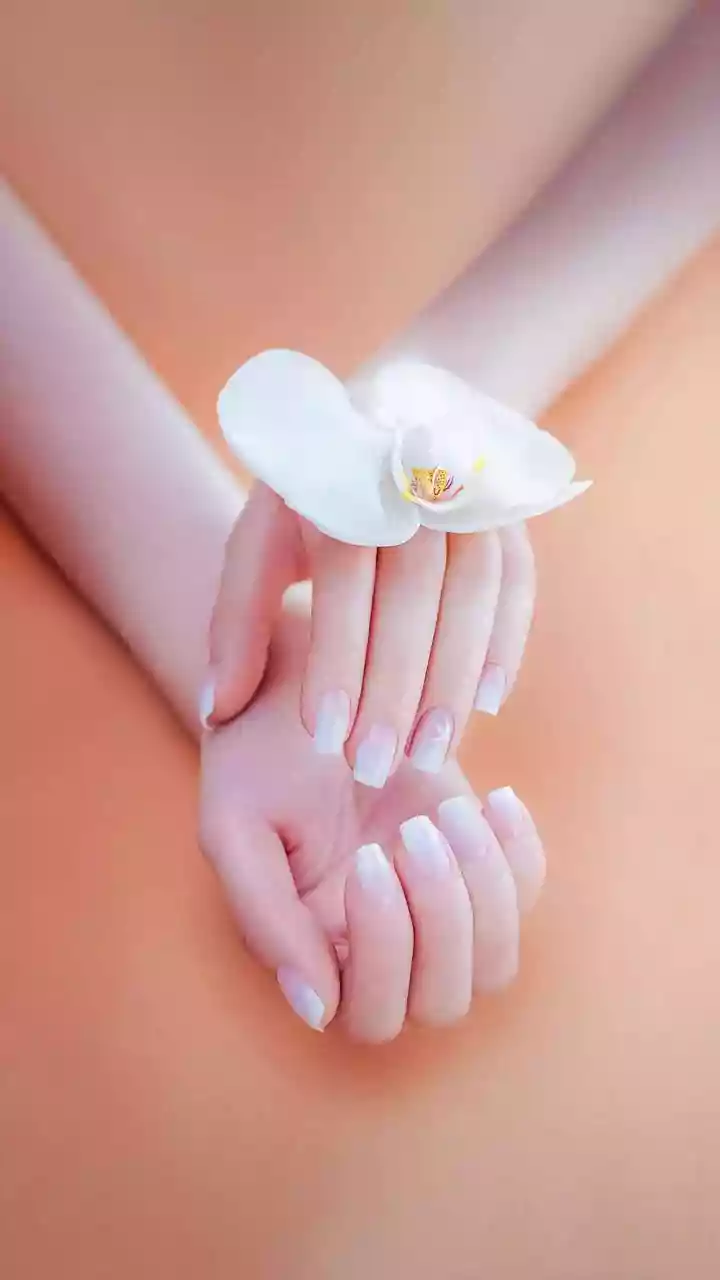Tea for radiance
The first herbal tea to consider is chamomile tea. Chamomile is widely recognized for its calming properties, often used to soothe anxiety and promote
better sleep. But beyond relaxation, chamomile is rich in antioxidants that fight free radicals, which are known to damage skin cells. Regular consumption of chamomile tea can help reduce inflammation, potentially alleviating skin conditions like eczema and acne. Furthermore, chamomile tea's anti-inflammatory nature can help reduce redness and puffiness, leaving your skin looking clearer and more vibrant. Preparing a cup is simple: steep a chamomile tea bag or loose chamomile flowers in hot water for about 5-7 minutes. Consider drinking a cup before bed to take advantage of its combined skin-enhancing and sleep-promoting effects.
Matcha's Antioxidants
Next on the list is matcha tea. Unlike regular green tea, matcha is made from finely ground green tea leaves, so you consume the whole leaf, thus benefiting from a concentrated dose of nutrients and antioxidants. Matcha is packed with antioxidants, especially epigallocatechin gallate (EGCG), which protects against cell damage and can slow down the aging process. The potent antioxidants in matcha are also great for boosting skin elasticity, reducing wrinkles, and shielding the skin from sun damage. In addition to its skin benefits, matcha can give you an energy boost and improve focus. To enjoy the advantages of matcha, whisk a teaspoon of matcha powder with hot water until smooth. For an extra flavour, you can add some honey or a dash of milk.
Rosehip's Vitamin C
Rosehip tea is another excellent choice for skin and hair health. Rosehips are the fruits of the rose plant, and they are extraordinarily rich in Vitamin C, an essential nutrient for collagen production. Collagen is a protein that maintains skin's firmness and elasticity; therefore, consuming rosehip tea can help reduce the appearance of wrinkles and fine lines. Vitamin C in rosehips also protects the skin from free radical damage, supporting a brighter, more youthful complexion. The antioxidants in rosehip tea help fight oxidative stress, which contributes to premature aging. Moreover, this tea may help with hair growth by boosting blood circulation to the scalp. Brewing rosehip tea involves steeping dried rosehips in hot water for around 10-15 minutes. It has a slightly tart flavor and can be enjoyed hot or cold.
Peppermint's Digestive Aid
Peppermint tea, primarily known for its refreshing taste and digestive benefits, also contributes to better skin and hair. Peppermint contains menthol, which has anti-inflammatory and antibacterial qualities. Drinking peppermint tea can help reduce acne and other skin infections by mitigating inflammation. While it might not have direct benefits for hair growth, improving digestive health, in general, can indirectly benefit hair, as better nutrient absorption is crucial for healthy hair growth. Peppermint tea is naturally caffeine-free and makes a soothing beverage any time of the day. To prepare peppermint tea, steep fresh or dried peppermint leaves in hot water for about 5 minutes. You may find that it helps with bloating and promotes overall well-being.
Hibiscus for Hair
Hibiscus tea, known for its vibrant red color and tart flavor, is the final tea in this list. It is rich in antioxidants, which can help protect the skin from free radicals and keep the skin looking healthy. Hibiscus tea is also praised for its potential to stimulate hair growth. It can improve scalp health by improving blood flow to the hair follicles, leading to stronger and healthier hair. The antioxidants in hibiscus tea are known to nourish hair, reduce hair fall, and prevent premature graying. Preparing hibiscus tea involves steeping hibiscus flowers in hot water for around 5-10 minutes. The tea has a unique flavor and can be enjoyed hot or cold, with a little honey to balance its tartness.




















